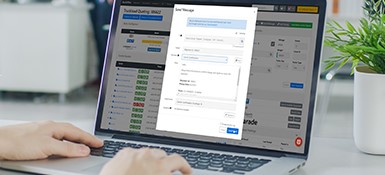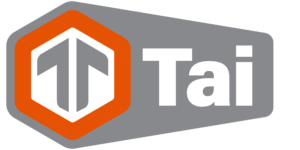Freight brokers are a major aspect in the business world, who make sure that cargo is delivered on time and without any issues. Freight brokers need TMS software that will help them increase their efficiency and provide a return on investment for the freight brokerage. TMS software needs to be able to do everything from order tracking, customer service, and accounting in one place. Before choosing any TMS software, freight brokers must ensure that it includes a variety of TMS capabilities in order to maximize its use and get the most out of it.
TMS software should allow the freight brokerage business to handle many, if not all, tasks in managing their company. That may include truck dispatch, driver billing/payroll, route planning, GPS tracking of vehicles, and more.
Consider the different types of TMS software that will cater to your needs. For example, for a small organization of freight brokers who are only responsible for facilitating one shipment between two manufacturers (and not considering many other points), there may be less need to dedicate resources or features towards procurement management.
What Will The Right TMS Software Do For Your Freight Brokerage Operation?
The TMS freight broker software should have the right features including access to various carriers, detailed cargo tracking and reporting tools for load pickups, and delivery status updates. That being said, there are several reasons why businesses might need something more freight industry-specific than traditional TMS.
A freight brokerage company will have the opportunity to save time, money, and resources for its clients. In other words, it will act as an outsourced shipping department for companies by providing them with value in the form of business cost savings.
It’s for this reason why the TMS freight broker software should not only cover TMS features but also customer-specific needs. That said, there are several common features that all freight broker-specific TMS systems need to have. Among these, we can include the following:
Matching Specific Freight to the Right Carriers
One of the most important TMS features that freight brokers need to look out for is the ability to match specific freight with carriers. Aside from basic freight matching, the TMS software also needs to be able to identify which carrier will offer the most cost-effective solution for a given shipment or modes of transportation and provide an accurate estimate of delivery times and costs associated with each option.
A TMS system should also allow freight brokers to set up their preferred shipping options and carriers. If they need to ship refrigerated freight, for instance, the TMS platform should be able to consider the needs of the shipment and present only carriers that offer refrigerated trucks.
Carrier Pricing Comparisons
 Freight brokers need to be able to compare prices so that they’re always getting the best available deal for their customers – even if this means shipping with a less popular carrier at times because it will offer rates that are better than the alternative.
Freight brokers need to be able to compare prices so that they’re always getting the best available deal for their customers – even if this means shipping with a less popular carrier at times because it will offer rates that are better than the alternative.
In addition, the TMS freight broker software should allow for more than just a simple price comparison. It’s also necessary to have access to carrier information such as operating guidelines and hours of service. The TMS freight broker software should also provide real-time carrier rates constantly updated throughout each day or week.
Automation Capabilities
TMS freight brokerage software should also be able to automate many of the day-to-day tasks associated with managing a logistics business.
For instance, most transportation management software comes equipped with automated functions like shipment creation and tracking; these are features that make life easier for busy brokers who don’t have time to worry about minor tasks.
In addition, TMS freight broker software should come equipped with its own electronic document management system that can be accessed from any device. This helps manage the work efficiently and is especially handy when a professional freight broker needs access to documents or reports while on location at an airport terminal, for example.
The TMS freight management software should also track and integrate with the TMS of customers, vendors, carriers, and trucking companies.
Integrate with Load Boards
Another essential transportation management software feature that’s important is integrating with load boards and other freight brokerage software. The majority of freight brokers will have to use load boards such as DAT, TruckStop.com, LoadSmart, or 123LoadBoard, among others. Such a freight board acts as an online marketplace where freight brokers can find loads from competing carriers.
TMS freight broker software should be able to integrate with these load boards and other common freight brokerage operations such as FTL load booking and trucking freight rate quotes – all of which are a part of the lifeblood for any successful freight broker business. This will allow brokers to source their load coverage from a single platform and update their listings across multiple load boards as necessary and from a single, centralized location.
Direct Carrier Integration
Direct carrier integrations are TMS features that allow freight brokers to have access to carriers’ systems from their own TMS. Freight brokers need to match pricing and availability data with carriers to make informed decisions on what is best suited for their customer needs. The connection can be made through an application programming interface (API) and electronic data interchange (EDI) integrations.
This TMS freight broker software is crucial because it can provide access to the full range of carrier data, including rate quotes and customer information. It also provides a way for freight brokers to update their customers on delivery status without manually logging in or making phone calls.
The TMS should also support EDI integration because this will allow them to send and receive shipments electronically instead of via faxes or paper copies that are inefficient. This is necessary because it provides a secure connection between the two parties involved in the transaction.


